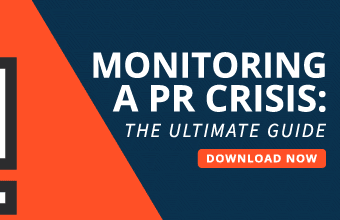The phrase “all press is good press” is not true, especially in the day and age of social media platforms where everyone can share their opinions in a matter of minutes. Most often, a PR crisis strikes when no one is expecting it—whether a business is hit with a lawsuit, or there has been a health hazard, or even if someone on top of the business stated something offensive during an interview and then it went viral.
Most of the time, when a PR expert wakes up in the morning, they tend to look forward to positive news coverage of the brand they are working with, but when it’s bad, the PR crisis has arrived.
We’re living in a time of “cancel culture,” and the public is willing to boycott individuals and companies even with very little provocation. Additionally, brands and corporations these days are being held to much higher ethical standards than the past, mostly due to consumers staying informed through the internet.
First steps
The first thing that should happen when a company is going through a PR crisis is to consult with a crisis PR agency and attorneys. These are the two most important aspects that have to be operating together and will have a perspective on the situation that is valuable.
Then, the business, as a whole, should decide on which stance to take, as well as be aware of any potential ramifications for any decision it makes at that point. There are different audiences that need to be informed, and they should be informed at a particular sequence, but this mostly depends on the business itself. Perhaps the board members and investors should be informed first, followed by the employees, and finally, the customers.
If it’s a small business that doesn’t have many board members, perhaps informing the public would be the first choice. For publicly traded companies or when there has been a data breach, the business may need to have legal disclosure requirements that need to be followed to the highest degree.
After that, once the decision on how to proceed has been made, it’s critical to have clarity before anyone from the business before going public with any sort of response. There might be reporters and journalists calling the employees with questions, so it’s important to inform them of who is and who isn’t authorized to speak to the press, and what they need to do if they do receive a call or any sort of question.
Going public
Finally, it’s important to have written copy before going on camera or sharing any sort of statement. In fact, most of the time, it’s a lot better to share some sort of written content before having anyone step in front of any cameras. However, it’s also important to note where that content should be shared—whether it’s going to be on the website, on social media, or with a press release.
The response should be quick, transparent, on-brand, and heartfelt. The business should accept any responsibility that it should and stick to a solution without placing blame.
This article was originally published on October 2, 2020 and republished on March 9, 2021.








